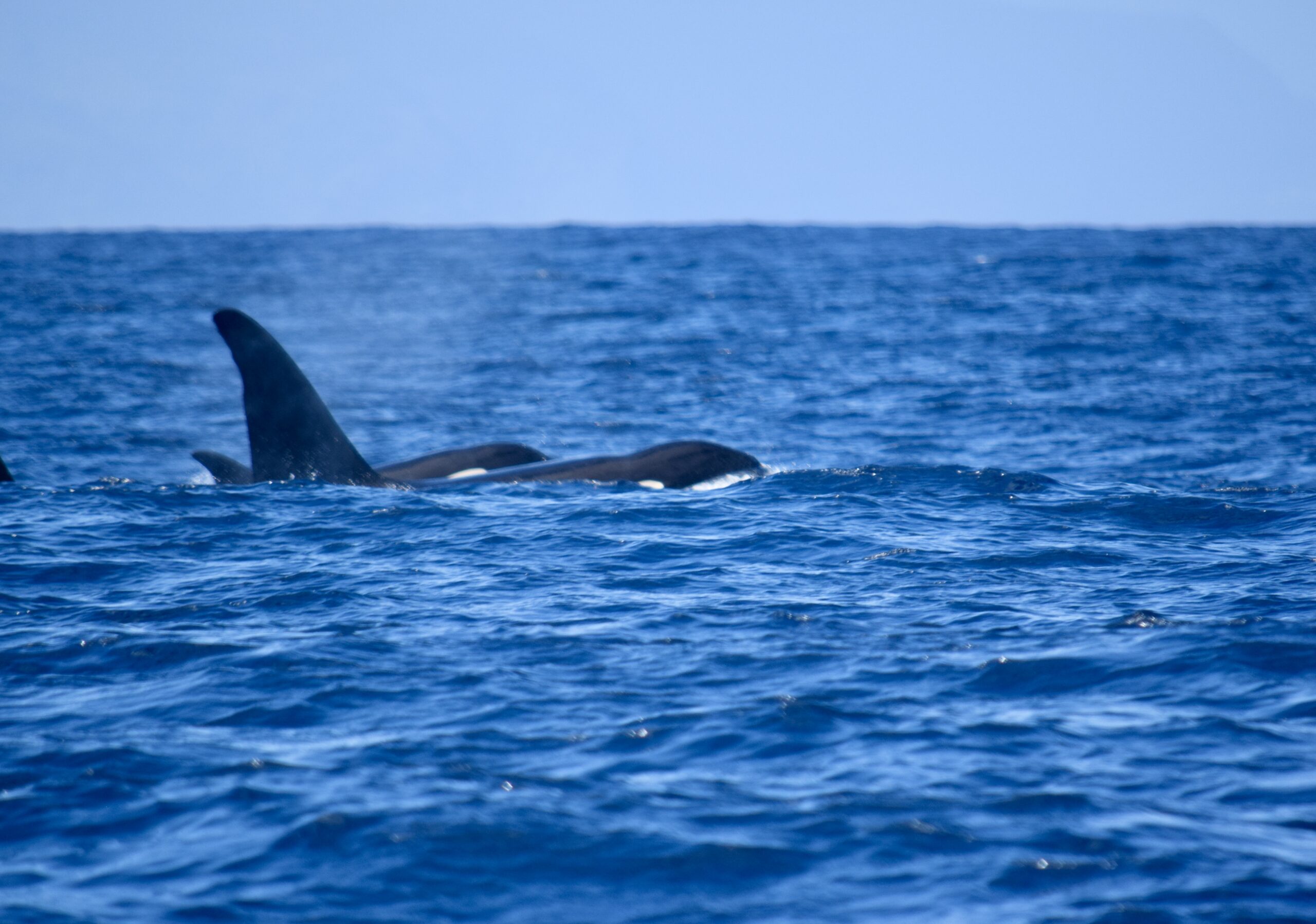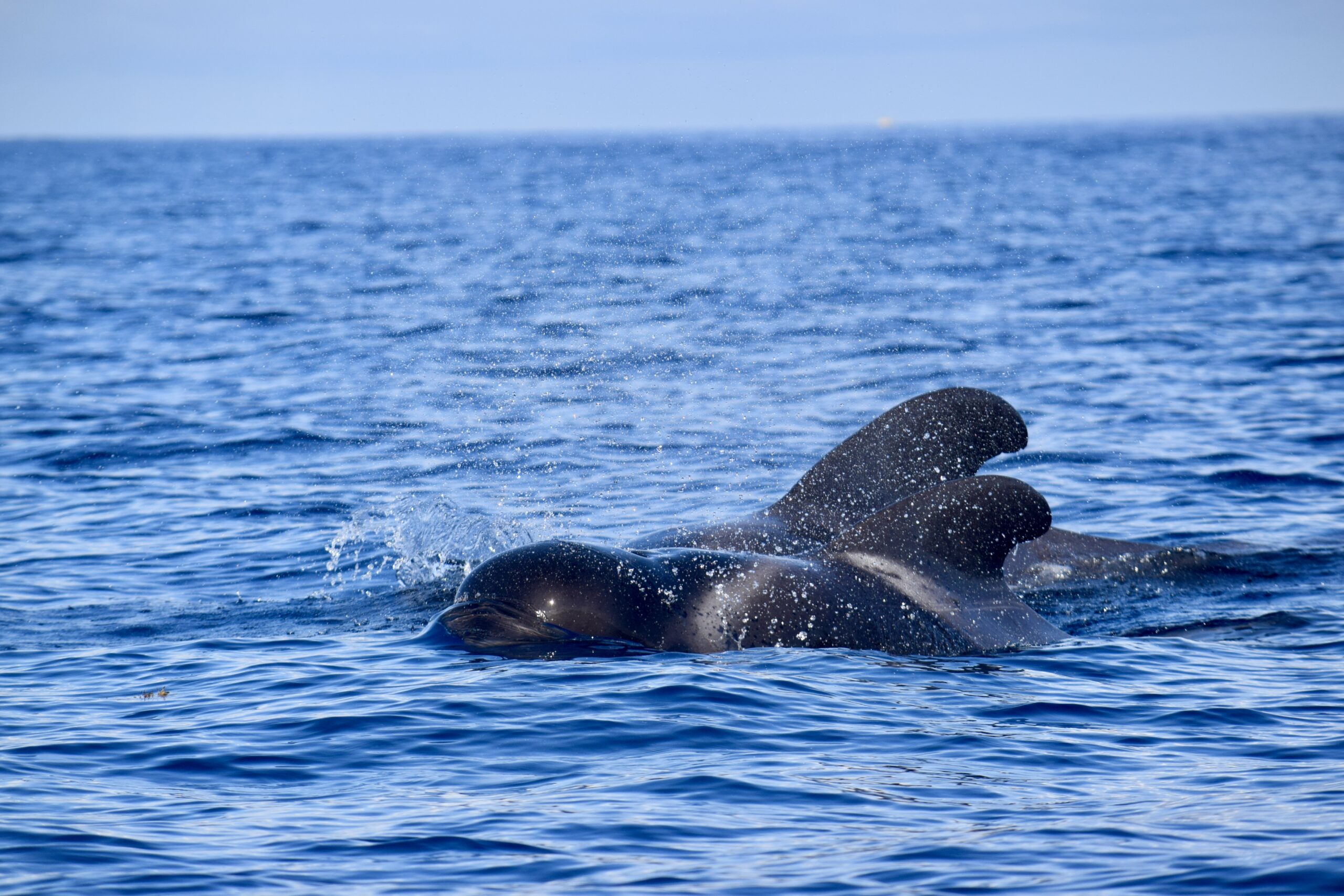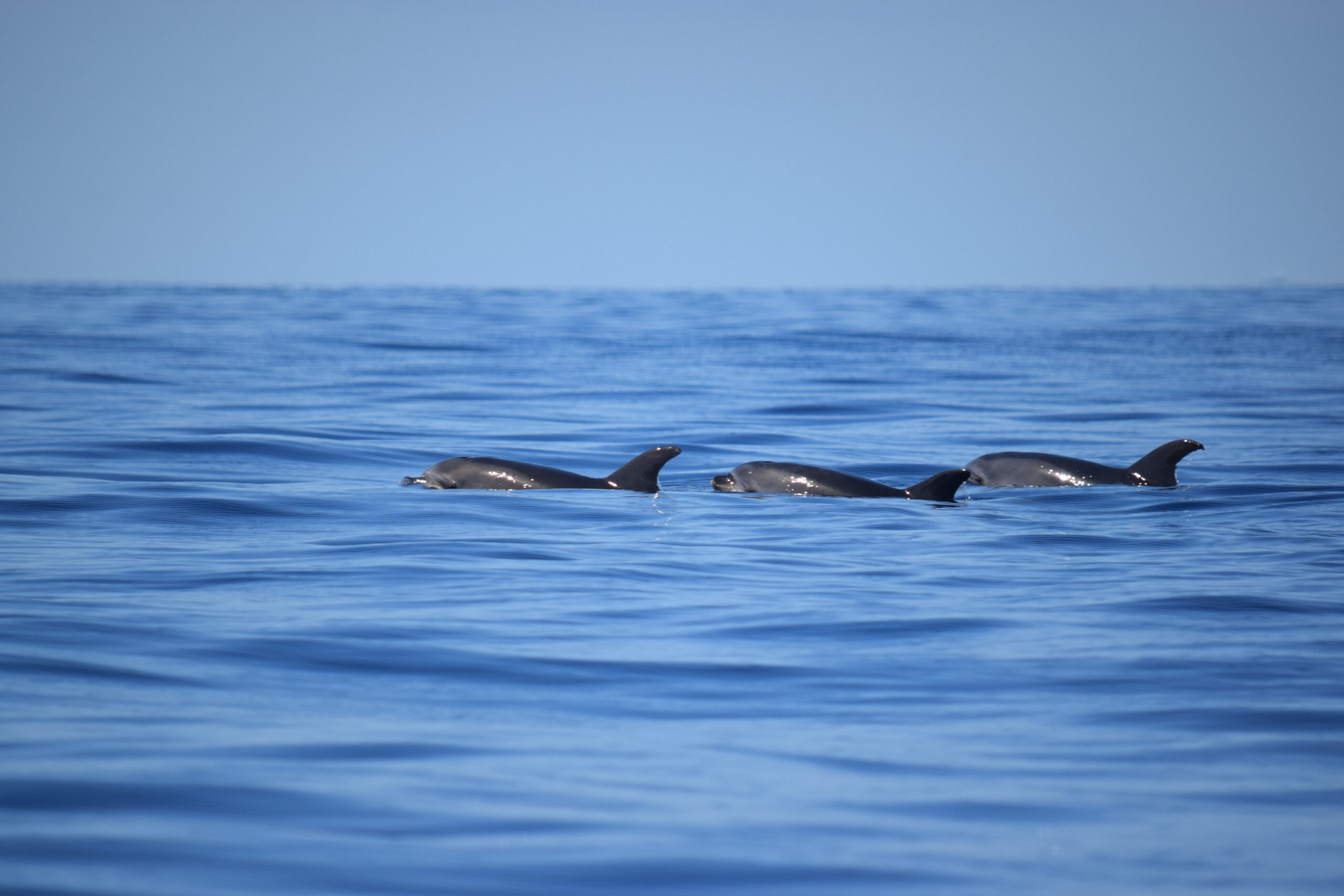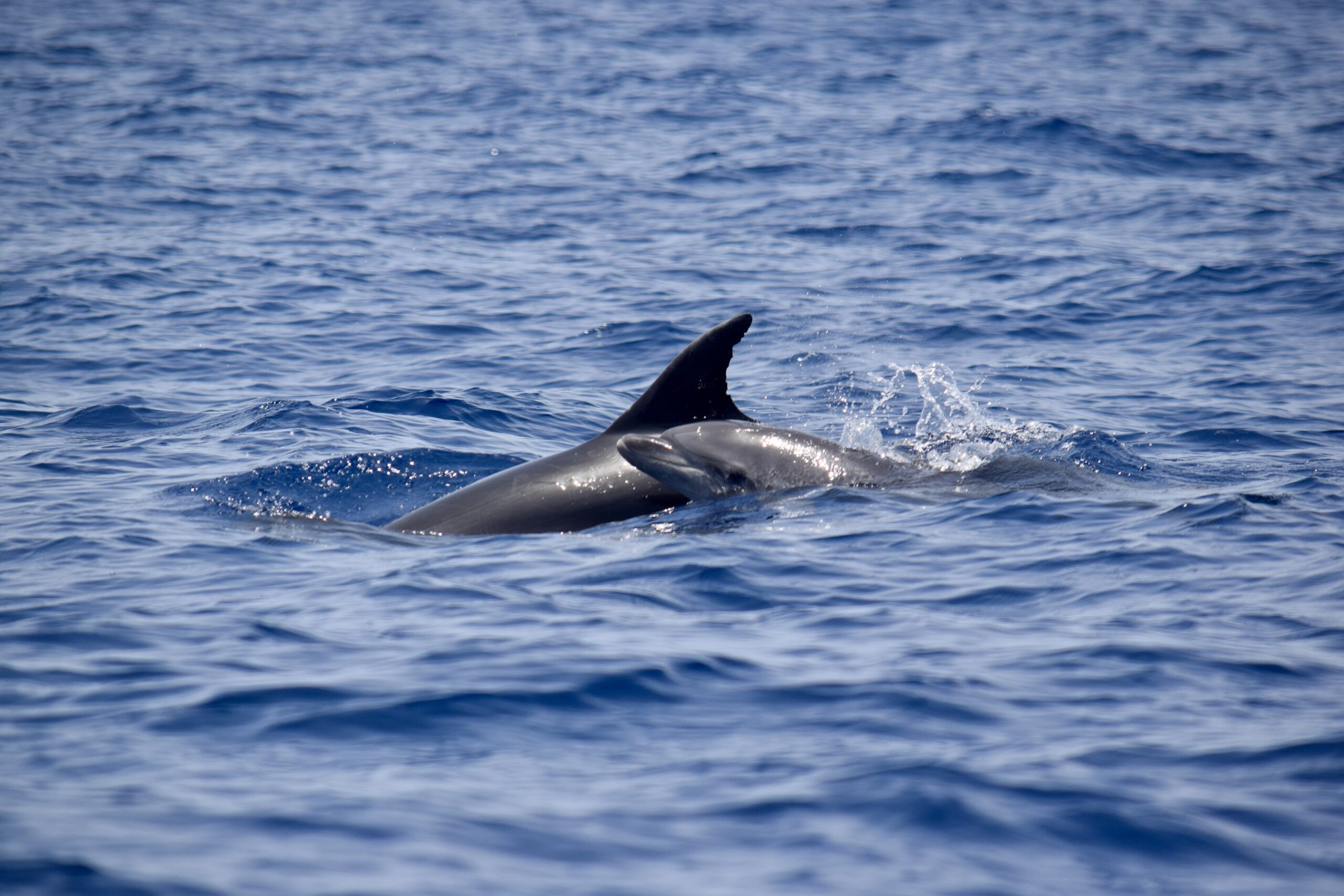Cetaceans have been the stars of legends, documentaries, and even movies for years. But along with the fascination they inspire, many myths circulate that have little to do with reality. Today, we want to help you separate fact from fiction and get to know some ocean dwellers a little better.
Myth 1: Dolphins Are Always Happy
Perhaps because of their natural “smile,” dolphins have earned a reputation for always being cheerful and friendly. But that facial expression doesn’t reflect their mood, it’s simply the shape of their jaw. Like any social and intelligent animal, dolphins can show playful behavior, curiosity, stress, or even sadness.
They’re far from being cartoon characters: they are emotional and complex beings.

Myth 2: Orcas Are Killer Whales
The name “killer whale” comes from the English term killer whale, but they are neither killers nor whales, as we mentioned in our May post.
Although orcas are ocean predators, their behavior is not aggressive toward humans in the wild. In fact, there are no reliable records of wild orcas lethally attacking people. They are social animals, highly intelligent, and they have distinct cultures depending on the group.
Myth 3: Cetaceans Need Human Help to Survive
Although we often hear news about strandings or rescues, most cetaceans are perfectly adapted to their environment and do not need constant human intervention. On the contrary, many of the problems they face (noise pollution, ship strikes, industrial fishing, etc.) are caused by human activities.
Our role should be to minimize our impact, not to “save” them with unnecessary interventions.

Myth 4: They Are Protected and Happy in Aquariums
This is one of the most harmful myths. Cetaceans need kilometers of ocean to swim, hunt, and socialize freely. In captivity, their behavior changes, signs of stress appear, and their life expectancy is much shorter.
That’s why responsible wild-watching, like what we promote at Whale Watch Tenerife, is the best way to admire their greatness without harming them.

Breaking down these myths is not just a matter of curiosity. Understanding the reality of cetaceans helps us respect them better, value their true needs, and promote more mindful tourism and coexistence.
Next time you see a pilot whale swimming freely or hear the song of a dolphin through a hydrophone, remember: they’re not storybook characters. They are real, complex, and extraordinary beings. And the more we learn about them, the more reasons we have to protect them.
Book your experience with us: whalewatchtenerife.org
 Booking
Booking








